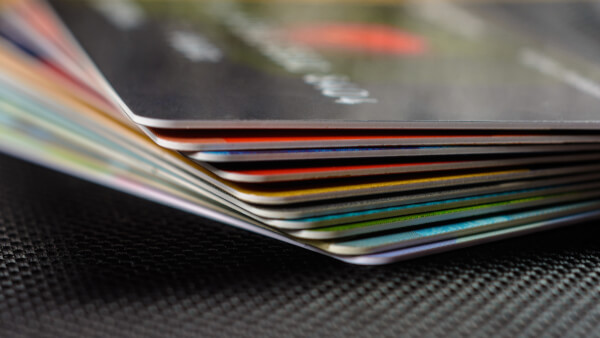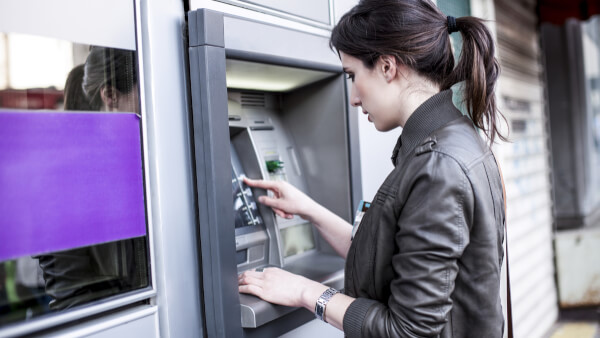Visa exchange rates: what are they and how can you benefit from them when paying from France?
Discover what lies behind the Visa rate and the interbank rate: what do they refer to? Are they advantageous? Are there alternatives?

When planning a trip or business travel abroad from France — especially outside the Eurozone — a few questions naturally come to mind: what are your options for currency exchange? What’s the most cost-effective way to manage conversion fees? Should you convert your euros before you leave or after arriving at your destination? And how much do banks in France charge for foreign ATM withdrawals? Let’s take a closer look.
If you’re travelling from France to a country outside the EU, consider opening a Wise account. It allows you to hold and convert 40+ currencies — including EUR, USD, and GBP — at the mid-market exchange rate, and carry out your essential travel transactions with transparent, affordable fees.
When planning a trip outside the Eurozone, there are several ways to convert your euros into foreign currency. Each method has its advantages and drawbacks in terms of cost and convenience.
Most major airports in France have currency exchange offices. This can be convenient if you’re in a hurry before your flight.
However, these kiosks often charge high commissions and apply less favourable exchange rates that may not reflect current market conditions.
You can usually order foreign currencies directly from your bank in France before your trip. While this option is simple, it’s often not the cheapest.
Most French banks apply exchange rates higher than the mid-market rate — the fair market value used between banks — and may add commissions for the transaction. Always check with your bank advisor before placing a foreign currency order.
It’s generally better not to carry or exchange large amounts of cash before travelling. This reduces the risk of theft and avoids having to reconvert unused currency when you return to France.
However, exchanging money once you arrive abroad can also be costly — let’s explore those options next.
If you prefer to exchange euros for local currency once you’ve arrived, make sure to compare available options carefully before committing.
Just like in France, most international airports abroad have currency exchange counters. However, these tend to have the least favourable rates and highest commissions.
For the best value, it’s advisable to avoid airport exchanges whenever possible.
Withdrawing money abroad can be convenient, but it often involves multiple fees — fixed and variable. These may include:
If your bank charges a fixed fee per transaction, withdrawing a larger amount at once can reduce costs.
Always withdraw in the local currency (not in euros) to avoid double conversion and ensure you get the most favourable rate.
Here’s an overview of some French banks’ withdrawal fees abroad:
| Bank | ATM withdrawal fees in the Eurozone | ATM withdrawal fees in foreign currency |
|---|---|---|
| BNP Paribas¹ | Variable depending on the card type | * Visa Infinite Card: 2% + €2.20 * Other cards: 2.90% + €3 |
| Société Générale² | * CB Visa - CB Mastercard: €1.20 from the 4th withdrawal | * CB Visa Infinite: €3.00 + 2% * Other cards: €3.00 + 2.7% |
| La Banque Postale³ | €1 from the 4th withdrawal | €3.30 + 2.30% |
| BoursoBank⁴ | Free | * ULTIM Card: 1.69% from the 4th withdrawal * Welcome Card: 1.69% from the 2nd withdrawal |
Information taken from the banks’ official fee schedules, last verified on September 14, 2025.
Please note: rates exclude any additional fees applied by foreign banks and may change.
French banks have daily and weekly withdrawal limits abroad, which vary depending on your card type and account.
Always inform your bank before you travel: unexpected international transactions can trigger fraud alerts and cause your card to be blocked.
Your bank advisor can confirm applicable limits and fees for withdrawals and card payments, and may be able to adjust them temporarily or recommend travel insurance for your trip.
Currency exchange offices and banks aren’t your only options — nor are they the most cost-effective. You can use independent providers such as Wise, which apply fair and transparent exchange rates.
With a Wise card and account, you’ll have international account details that allow you to withdraw money, pay by card, and send transfers without hidden fees.
Please note: before signing up, check whether the Wise card is available in your country of residence.
Banks and exchange offices often apply hidden markups to their exchange rates. They may use a rate higher than the actual mid-market exchange rate to include their margin.
Be cautious of offers claiming “zero commission” — these often include hidden rate markups that end up costing you more. Always compare the offered rate with the true mid-market rate to understand the real cost of your conversion.
As shown in this guide, most French banks charge high fees for currency conversion and international withdrawals.
To manage your travel money more easily and affordably, you can open a Wise account.
Here’s what you get with Wise:
Last verified on September 14, 2025.
This article is a translation of the original article published in French and was translated within 365 days of publication. While the content has been translated for accessibility, the data and sources referenced have not been updated since the original publication date.
*Please see terms of use and product availability for your region or visit Wise fees and pricing for the most up to date pricing and fee information.
This publication is provided for general information purposes and does not constitute legal, tax or other professional advice from Wise Payments Limited or its subsidiaries and its affiliates, and it is not intended as a substitute for obtaining advice from a financial advisor or any other professional.
We make no representations, warranties or guarantees, whether expressed or implied, that the content in the publication is accurate, complete or up to date.

Discover what lies behind the Visa rate and the interbank rate: what do they refer to? Are they advantageous? Are there alternatives?

Everything you need to know when travelling abroad with your Banque Populaire card: what are the fees and charges? How to reduce commissions?

Discover our tips for withdrawing money abroad with complete peace of mind, while minimizing bank fees and saving money during your travels.

Discover how to reduce withdrawal fees with your Crédit Mutuel card internationally. Practical tips for saving money while traveling.

Multi-currency cards are ideal for people who travel frequently or live abroad. Discover how to use them to save money.

Discover all the commissions on your payments abroad with a BNP Paribas international card: in the euro zone or outside.